Noted historian Deborah Lipstadt was nominated by President Biden to head the administration’s Office to Monitor and Combat Anti-Semitism. She should be a shoo-in but her appointment has been stalled. To read why, click here.
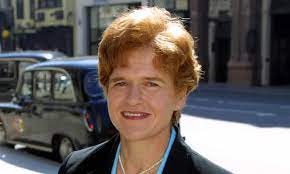

Noted historian Deborah Lipstadt was nominated by President Biden to head the administration’s Office to Monitor and Combat Anti-Semitism. She should be a shoo-in but her appointment has been stalled. To read why, click here.
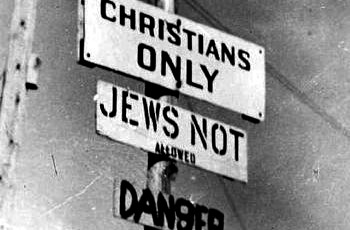
I’m not in the habit of writing non-Jewish holiday-season pieces but did so recently. My essay appeared in the Washington Post but can be read paywall-free here.
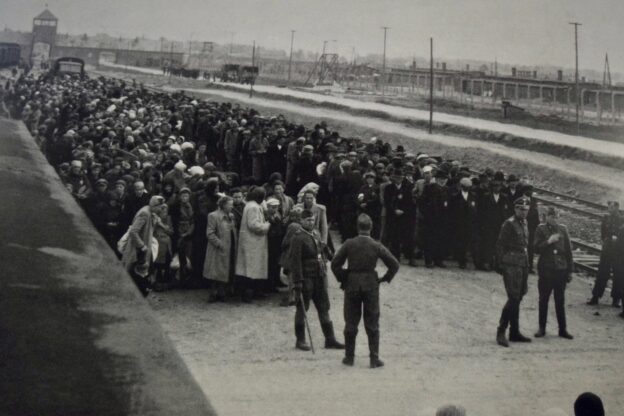
It may have started back in the summer of 2020, when a Kansas Republican county chairman posted a caricature of the state’s Democratic governor Laura Kelly on his newspaper’s Facebook page. Ms. Kelly had issued a public-setting mask mandate, and was depicted wearing a mask with a Magen David on it. In the background was a photograph of European Jews being loaded onto train cars. The caption: “Lockdown Laura says: Put on your mask … and step on to the cattle car.”
The next summer, we were treated to Congresswoman Marjorie Taylor Greene’s criticism of House Speaker Nancy Pelosi’s mask requirement for the chamber, in which Ms. Taylor Greene declared: “You know, we can look back at a time in history where people were told to wear a gold star… were put in trains and taken to gas chambers in Nazi Germany. And this is exactly the type of abuse that Nancy Pelosi is talking about.” Under pressure from her peers, the congresswoman later apologized; but her point, such as it was, had been made, and likely energized her like-minded supporters.
Then came Oklahoma GOP chairman John Bennett’s comparison of private companies requiring employees to get vaccines to — three guesses — the Nazis’ forcing Jews to wear a yellow star.
The odious comparisons just seemed to pile up, across the country. They were getting attention, after all, and attention is catnip for political felines. Of course, the offensive comments, each in turn, were all roundly condemned by Jewish groups. Wash, rinse and repeat.
Last week, though, may have offered us the Mother Of All Such Slurs, when broadcaster Lara Logan, once a respected CBS News foreign correspondent and now a Fox Nation commentator, appeared on the “Fox News Primetime” program, where she addressed Dr. Anthony Fauci’s recommendation that Americans get fully vaccinated, including booster shots, in the wake of the appearance of the Omicron COVID variant. Her words:
“This is what people say to me, that he doesn’t represent science to them. He represents Joseph Mengele, the Nazi doctor who did experiments on Jews during the Second World War and in the concentration camps. And I am talking about people all across the world are saying this.”
A cursory search turns up no one but Ms. Logan saying such a thing, but maybe those people all across the world spoke with her privately.
As usual, Jewish groups rightly rushed to condemn her statement. But she was impervious to the criticism, later re-tweeting to her 197,000 Twitter followers a Jewish fan’s comment: “Shame on the Auschwitz Museum for shaming Lara Logan for sharing that Jews like me believe Fauci is a modern day Mengele.” Well, that makes two people, anyway.
This introduction shouldn’t be, and probably isn’t, necessary, but for any readers not fully familiar with Josef Mengele, yimach shemo vizichro: He was a Nazi doctor given the title “Todesengel” — German for malach hamaves. At Auschwitz, he performed deadly experiments on prisoners, selected victims to be killed in the gas chambers and helped administer the Zyklon B, or hydrogen cyanide, gas.
Mengele was particularly interested in twins, separating them on their arrival at the concentration camp, and performing experiments on them, including infecting them with germs to give them life-threatening diseases, performing operations on them without anesthetics and killing many of them to compare their and their siblings’ internal organs.
As to Dr. Fauci’s sin, it is being cautious — overly so, to his critics — about public health measures.
Aside from the insult and offensiveness of the Holocaust comparisons, the repeated use of the murder of six million Jews as a political tool should bother us for another reason:
With each one, even dutifully followed by condemnations, the memory of Churban Europa is further dulled a bit, the force of its historical reality subtly blunted. The public mind is, slur by slur, lulled into regarding the Holocaust as a mere metaphor. That may be of no concern to the offenders, but it should be to us.
Because the cascade of casual co-optings of the Holocaust to score political points dovetails grievously with the diminishing number of living links to the events of 1939-1945.
And all the loathsome little Holocaust deniers and revisionists are just licking their lips as they wait in the wings.
© 2021 Ami Magazine
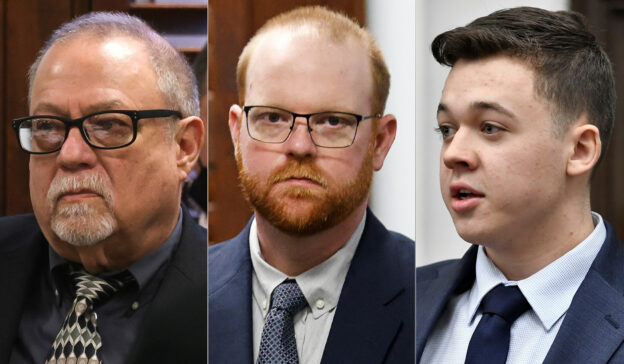
My Ami column last week, about two recent much-publicized trials, can be read here.
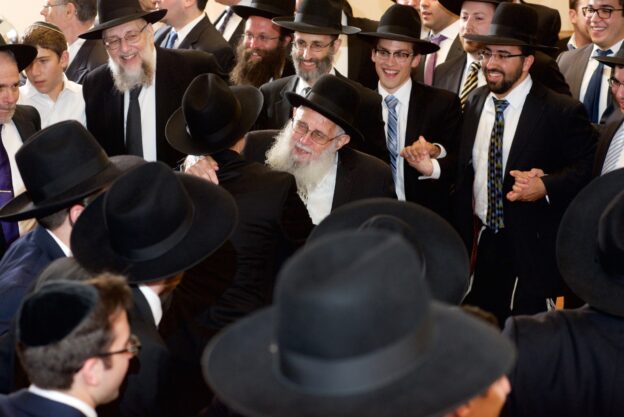
My father, a”h’s, fifth yahrtzeit is tomorrow. Several years before he passed away, he and I collaborated on a book about his experiences in Poland, Siberia and Baltimore. It is titled: “Fire, Ice, Air” and can be obtained here.
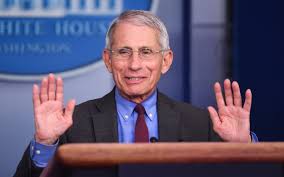
“After prosecution, the chair, the gallows, or lethal injection?” was the question posed on a Facebook page featuring an image of National Institute of Allergy and Infectious Diseases (NIAID) director Dr. Anthony (“Tony”) Fauci superimposed over a noose.
It wasn’t the page of some intoxicated pajama-clad couch potato but the official Congressional campaign page of Wyoming State Senator Anthony Bouchard.
Over in Kentucky, General Assembly Representative Regina Huff tweeted a photo of mass murderer cult leader Jim Jones next to one of Dr. Fauci.
The Fauci-as-fiend motif has gained momentum — after more than fifty years of the doctor’s lauded service to every president since Ronald Reagan and his receiving the Presidential Medal of Freedom from President George W. Bush — beginning the moment he first dared, during the early days of the pandemic, to contradict virus-related statements and prognoses made by former president Trump.
But, of late, the vilification has built to a fevered pitch.
On social media, the latest big Fauci story was an old one, about how, in the 1980s, he sponsored clinical drug research in which minority children were supposedly targeted for trials, ripped away from their families and in some cases died as a result of the trials.
Days earlier, there was “Beaglegate,” the accusation by an animal rights group that the NIAID funded a project that allowed a lab in Tunisia to “drug beagles and lock their heads in mesh cages filled with hungry sandflies, so that the insects could eat them alive.”
On the Senate floor, Kentucky Senator Rand Paul, when not busy delaying a Senate vote on a bill to expedite Iron Dome funding for Israel, has been shouting at Dr. Fauci, calling him a liar (and asking the Justice Department to investigate him) for denying to Congress that the National Institutes of Health funded “gain of function” experiments — research exploring how viruses can become more virulent or lethal — at the Wuhan Institute of Virology.
These days, there is more interest in fingering foes than in ferreting facts, but, for anyone interested in the latter, here goes.
The 1980s trials involved HIV-infected foster children and sought effective therapies to prevent that virus from resulting in AIDS. A BBC documentary at the time reported accusations made by a fringe figure as fact. The Beeb later apologized for the documentary, admitting that it hadn’t properly investigated the claims referenced above, which a 2009 investigation found were not true.
As to the beagles, the NIH did indeed partially fund research on dogs conducted at the University of Georgia to test the efficacy of a potential vaccine for lymphatic filariasis, a parasitic disease. A university spokesperson indicated that the testing was necessary and that all humane standards set by applicable agencies were adhered to. The dogs were infected with the parasite through injection, not by being exposed to flies — and were certainly not “bitten to death by” them.
The issue of “gain of function” research, though, that has consumed Senator Paul and assorted talk show bloviators is a real one. Credentialed experts are divided over whether the use of the funding at issue in fact meets the definition of that phrase, so the senator and doctor will likely continue to spar over the charge of the latter’s “lie.”
But, biological semantics aside, the entire “gain of function” issue arose only because of the assertion that the Covid-19 virus was caused by the NIH-funded experiments.
Now, it is entirely plausible that the virus emerged not from Chinese animal markets but from a China-directed lab experiment gone awry (or, horrific to consider, but consider we must) the intentional unleashing of a new virus.
But the naturally occurring coronaviruses that were studied under the NIH grant, analysis of genomic data proves conclusively, “could not possibly have caused the COVID-19 pandemic,” according to NIH Director Dr. Francis Collins. “Any claims to the contrary,” he added, “are demonstrably false.”
As psychologists and life readily affirm, in times of distress, some people experience an intense urge to find someone to blame and vilify. When that quest yields fabricated accusations, unfair depictions and imputations of malevolence, it might smell familiar to history-conscious Jews.
So, Dr. Fauci: 1) Thank you for your service, and 2) Welcome to the club.
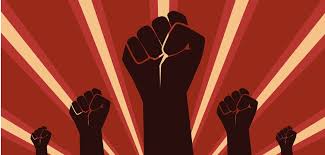
“Critical Race Theory,” which rests on the assumption that racial bias remains hard-wired in our country’s laws, policies and institutions, is dangerous nonsense. But perfectly legitimate topics for discussion and inclusion in school curricula are things that many mistakenly conflate with CRT. Those two points comprised the topic of my Ami column last week, which is at https://www.amimagazine.org/2021/10/27/critical-race-leery/
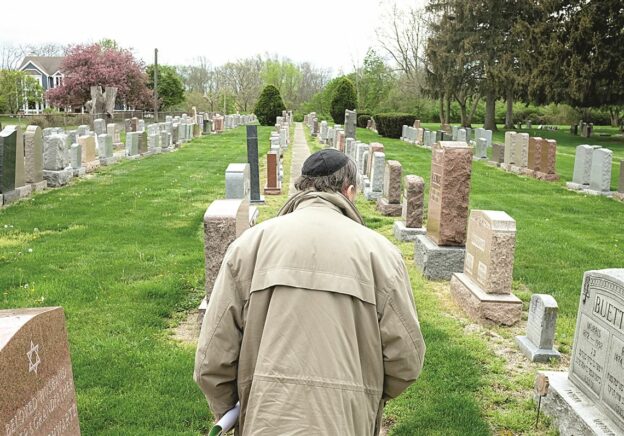
Something about the news reports in the wake of the December 10, 2019 shooting at a kosher grocery in Jersey City store bothered me at the time, but I couldn’t quite put my finger on it. Novelist Dara Horn, in her new collection of essays, “People Love Dead Jews: Reports From a Haunted Present,” fingers it well.
She quotes the Associated Press report, which was picked up by many news outlets: “The slayings happened in a neighborhood where Hasidic families had recently been relocating, amid pushback from some local officials who complained about representatives of the community going door to door, offering to buy homes at Brooklyn prices.”
Ms. Horn wonders why other cases of domestic terrorism, like against black churches or nightclubs, aren’t similarly “contextualized” in an attempt to explain what motivated the murderer. And she muses further that “Like many homeowners, I too have been approached by real estate agents asking me if I wanted to sell my house. I recall saying, no, although I suppose murdering these people would also have made them go away.”
That dagger of a comment is one of many marvelously acerbic observations in Ms. Horn’s book.
Like her further observation on the Jersey City massacre, that when it comes to identifiably Jewish Jews, the crime for which they are persecuted, even killed, is the sheer audacity of “Jews, living in a place!”
Or like the story she tells at the book’s beginning, about the Anne Frank museum in Amsterdam, about an employee who donned a yarmulke one day and was told to cover it with a baseball cap. The museum relented after four months’ deliberation, which, Ms. Horn writes, “seems like a rather long time for the Anne Frank House to ponder whether it was a good idea to force a Jew into hiding.”
Zing.
Anne Frank inspires a further observation from Ms. Horn, about the most famous quote from the young girl’s diary, “I still believe, in spite of everything, that people are truly good at heart.”
Ms. Horn: “It is far more gratifying to believe that an innocent dead girl has offered us grace than to recognize the obvious: Frank wrote about people being ‘truly good at heart’ three weeks before she met people who weren’t.”
The writer journeyed to China, where she visited the Manchurian village of Harbin. Jews once lived there, until they were forced to flee or were killed in the 1930s by the invading Japanese army. Today, in tribute to the Jewish community that once thrived there, Harbin hosts a museum that replicates the once-Jewish part of the town, complete with shuls and stores. The writer’s suggestion for a name for such exhibits about former Jewish dwelling places: “Property Seized from Dead or Expelled Jews.”
The unifying theme of the essays in “People Love Dead Jews” — the author was surprised when her publisher actually accepted her suggestion for a title — is that all the concern and admiration for Jews seemingly reflected in memorials and museums and novels and movies comprises something other than true goodwill toward actual Jews today.
“I had mistaken the enormous public interest in past Jewish suffering for a sign of respect for living Jews.” she writes. But, she says she came to realize, “even in its most apparently benign and civic forms” it is “a profound affront to human dignity.” Focusing on dead Jews, Ms. Horn seems to be saying, avoids having to confront the reality of live ones.
The book’s final essay, unexpectedly and enthrallingly, focuses on the most recent Daf Yomi Siyum HaShas, where more than 90,000 Jews packed MetLife Stadium (and nearly 20,000 at Brooklyn’s Barclays Center, and countless others in locations across the continent and around the world). The essay bears the title “Turning the Page.”
Ms. Horn, who wasn’t raised, and doesn’t consider herself, Orthodox, opts to study Daf Yomi. By doing so, she says, “I turn the page and return, carried by fellow readers living and dead, all turning the pages with me.”
Don’t expect the world to understand, or even care about, us, she seems to be saying to fellow Jews. Just connect with one another, with all of us, and, most importantly, with our mutual spiritual heritage.
© 2021 Ami Magazine

Veteran Supreme Court observer Linda Greenhouse sees religion as polluting judicial decisions. She’s mistaken in some facts and in her fears.
My thoughts on the matter can be read in my Ami column from last week, which can be read here.
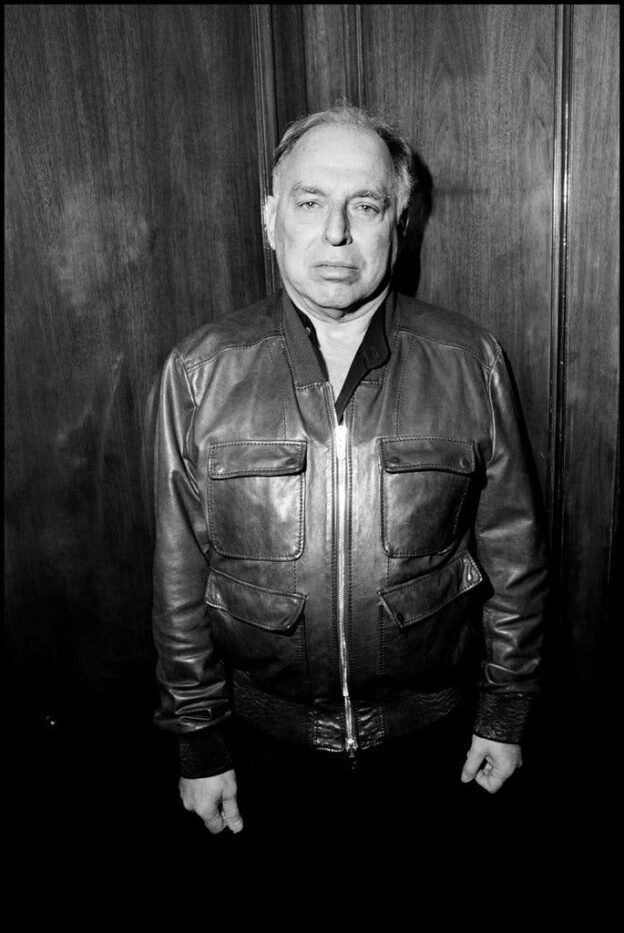
A letter I wrote to the Wall St. Journal was published today, and is here.
It reads as follows:
WSJ • OPINION
• LETTERS
Mr. Peretz Takes a Swipe at Orthodox Jews
In reviewing a book about the ‘othering’ of Jews, no less.
Oct. 10, 2021 3:04 pm ET
Irony has seldom been more glaring than in Martin Peretz’s claim, in his review of Dara Horn’s “People Love Dead Jews” (Bookshelf, Oct. 5), that “many of the ultraorthodox, the very pious, the canonical don’t think of me and mine as brothers and certainly don’t think of Jewish women like Ms. Horn as sisters.”
How dolefully humorous that my brother, Mr. Peretz, in reviewing a book by my sister, Ms. Horn, about how much of the world treats Jews as “others,” not only misinforms readers but engages in a particularly ugly “othering” of fellow Jews, those of us who hew to our—his, Ms. Horn’s and my—mutual religious heritage.
Rabbi Avi Shafran
Agudath Israel of America
New York